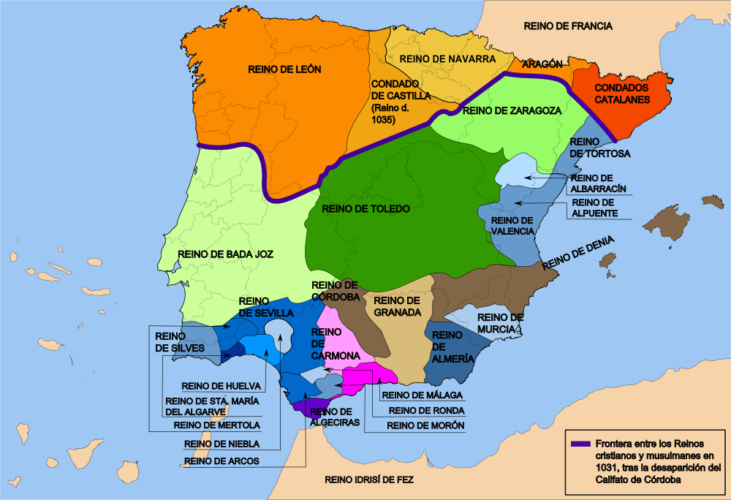The cardinal regions and the farce of the Pays-de-la-Loire
By Pierre Scordia
When you look at a modern map of France, you may spot an anomaly in the shape of the regions, and one in particular: the Pays-de-la-Loire, a puppet region created by the French state during the second half of the twentieth century for the sole purpose of weakening Brittany, its neighbouring region with a very strong regional identity.
It is clear that for Paris, the ideal set-up would be a map where you would have at its centre (Centre-North to be more precise) the capital surrounded by all its satellites referred to as cardinal points: the North region, the South region, the Southwest region, the Greater West Region, the Greater East Region, and the Central Region. They couldn’t have thought up a better way to make it all but impossible for French provinces to promote themselves abroad! The old elite of the pre-Macronist era gradually changed the names of the millennial French regions; farewell Alsace-Lorraine that has since become Grand-Est!
The new region in the north has found a way round the situation by adopting a beautiful but meaningless name: "Hauts de France". As for beautiful Provence-Côte d'Azur whose mere name sets the whole world dreaming, it has been renamed Region Sud – South! (officially Sud Provence-Alpes-Côte d'Azur, as if the name was already not long enough). One cannot help but wonder if Mr Muselier (president of this region) has ever set foot outside France... What is South exactly? Bordeaux, Toulouse, Marseille, the African islands?
The creation of the Greater West Region (a merger of Brittany and Pays-de-la-Loire) was prevented in extremis by the strong opposition of the current French Minister of Foreign Affairs, Jean-Yves Le Drian, who was acutely aware of the danger that such a merger would represent for his native Celtic region of which he was president for so many years. For instance, the Breton language is already in danger of extinction (only 200,000 speakers), bilingualism on signs(1) being one of the last attempts to save this Celtic language from annihilation. Nonetheless, the price it has paid is a weakening of its economic weight; Loire-Atlantique (including Nantes, former capital of Brittany) being unfairly relegated to the Pays-de-la-Loire.
Make no mistake, you will not find the beautiful castles of the Loire Valley within the Pays-de-la-Loire, whose name is simply a denominational sham. Most of the castles are located in the neighbouring region "Centre" which, after having fought for many years, was finally granted by Paris the right to rename itself "Region Centre-Val de Loire". The Pays-de-la-Loire is but an illogical hotchpotch name encompassing Brittany’s economic heart (around Nantes), Anjou, Maine and part of Poitou (Vendée). The Loire only flows through two of its five departments!
Territorial reform that is respectful of regional identities clashes with the policies of many elected local officials who have total disregard for the opinions and feelings of citizens who they claim to represent in municipalities and constituencies. Perhaps they were more concerned about their career prospects than about creating coherent regions? François Fillon, who has recently earned a reputation for dishonesty, refused to permit the break-up of the Pays-de-la-Loire of which he was president between 1998 and 2002. He reportedly said it would be a shame to destroy 30 years of work; in other words, that it would be better to destroy 1200 years of history by amputating Brittany.
The daughter of a friend living in Quimper (in Lower Brittany) placed Nantes in Brittany during a geography exam. For this she was given a zero because, according to the teacher, Nantes was no longer in Brittany but in Pays-de-la-Loire, although in reality the county of Nantes has been in Upper Brittany since the 9th century. This is tantamount to denying that Belfast is in Ireland!
It seems some bureaucrats have come up with an irrefutable argument: the risk of a battle of the steeples prevents us from having the two "big” cities - even if they are not – of Rennes and Nantes, in the same region. As if it was out of the question to have both Marseille and Nice in the Provence-Côte d'Azur region!
Admittedly, it could be said that this policy is purely pragmatic and for administrative purposes, but the problem is that the Region Pays-de-la-Loire is trying at all costs to create a Ligerian identity and this can only happen by wiping out the Breton identity in the Nantes area. This policy has met with some success since over 25% of the Loire-Atlantique population no longer consider themselves Breton (this percentage set against the roughly 70% who would like to see their department re-join the administrative region of Brittany).
Despite austerity measures still in place, the former socialist administration of the Region Pays-de-la-Loire was nonetheless permitted to spend more than 105 million Euros on promoting the image of their little known region: a failure according to Frank Louvrier, the new president of the regional committee for tourism. He declared that Pays-de-la-Loire as a tourist destination does not exist. From now on the promotion of tourism has been delegated to the municipalities themselves and they have opted for Bretagne Plein Sud (Far South Brittany) or Bretagne Loire Ocean as a denomination. What’s more, all shops aimed at tourists, in Nantes and La Baule, are from now on to be exclusively focused on Brittany.
Nevertheless, the French government is suspected of planning to withdraw Nantes from the main Breton Court of Appeal in Rennes - the only administration that still respects the territorial integrity of Brittany, and to attach Nantes to the jurisdiction of Angers, a small court that does not have the infrastructure to process cases from the former capital of Brittany. More millions of Euros would thus be wasted.
In France, it is risky to defend regional identity. One can lose all credibility and be accused of being old-fashioned, backward and even anti-republican. Similarly in the media, you will find many journalists who poke fun at this Breton regional claim. Certainly, the French Revolution brought many benefits but surely it is not a reason to make a clean sweep of the past.
In Paris, you come to realize that there is a fundamental misunderstanding of Brittany with many prejudices against the Bretons persisting. Yet Bretons remain moderate, liberal and pro-European. Brittany has never been a hunting ground for the National Front, radical left nor the populist movements. It is in fact the richest region per capita and the most educated and qualified. It is not surprising that Bretons voted overwhelmingly for Emmanuel Macron and his new party La République en Marche during the 2017 elections.
It is time for a French President to reward open regionalism because, unlike Corsica or even Catalonia, the Breton identity is based on this mantra: "whoever loves Brittany is Breton". Let's hope that Emmanuel Macron will do justice to a loyal Brittany proud of its French, Republican and Breton identities and that he will not oppose an eventual reunification of Brittany.
FORM-Idea London, 8th February 2018. French version was published by AgoraVox.fr
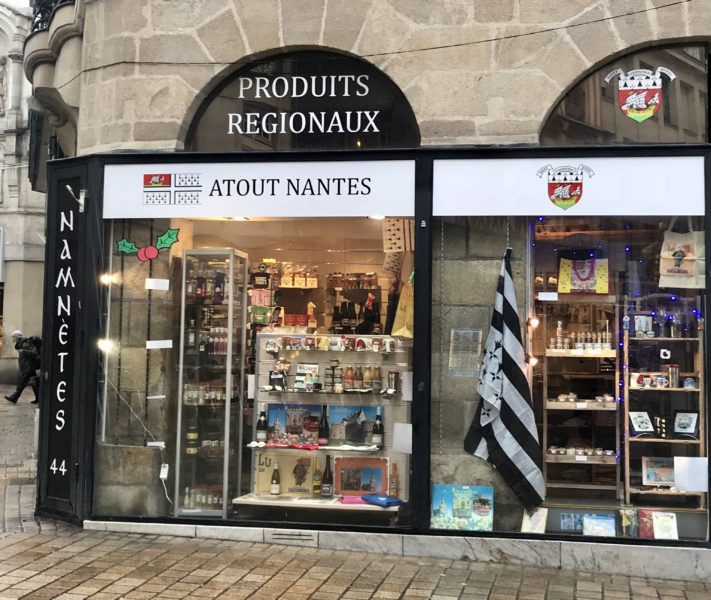
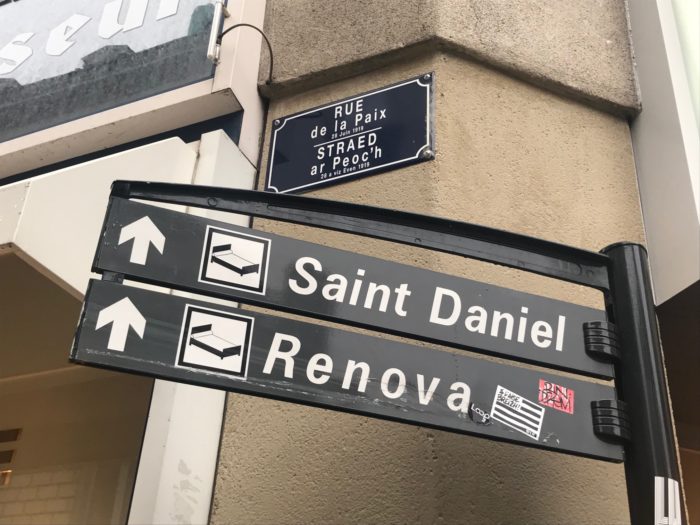
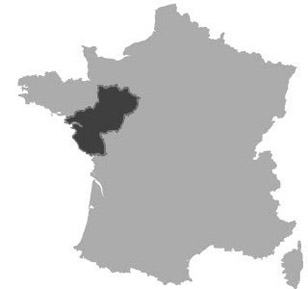 Pays-de-la-Loire, an illogical hotchpotch
Pays-de-la-Loire, an illogical hotchpotch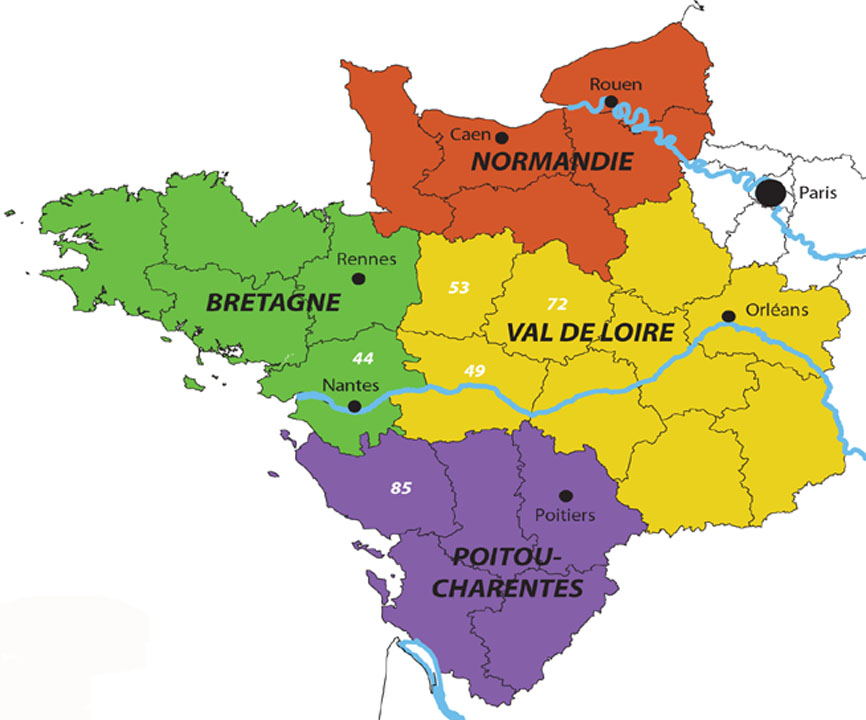 What it should have been if local democracy had prevailed
What it should have been if local democracy had prevailed

